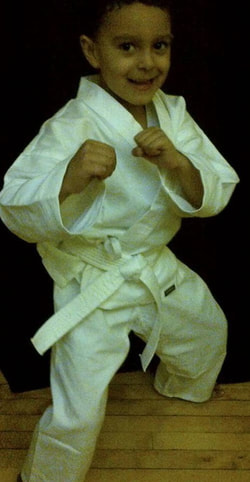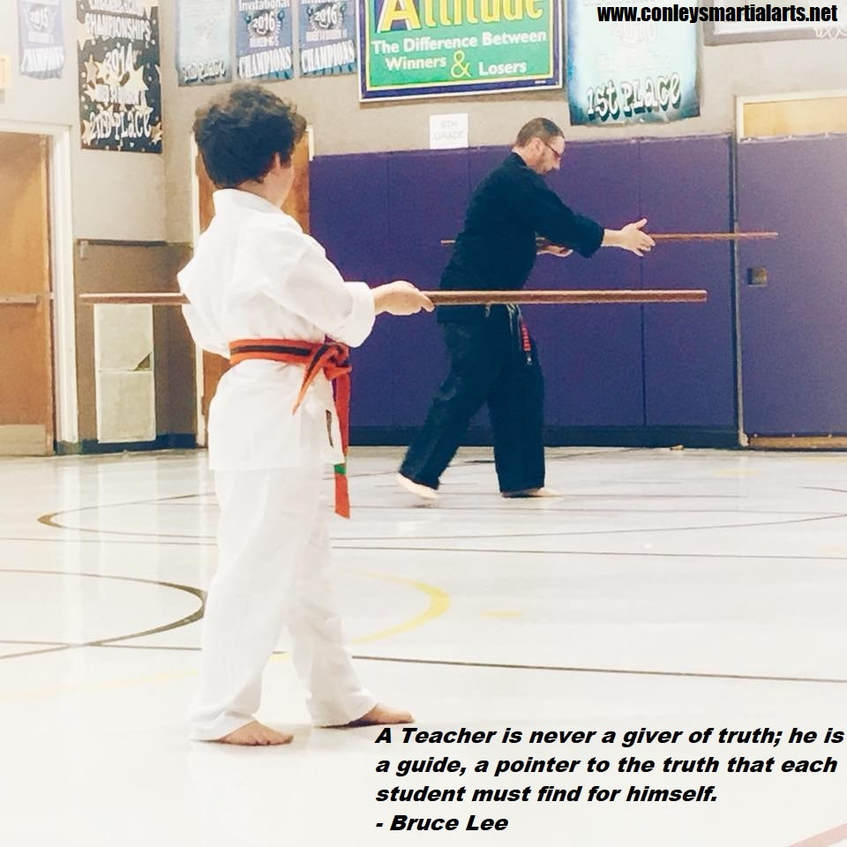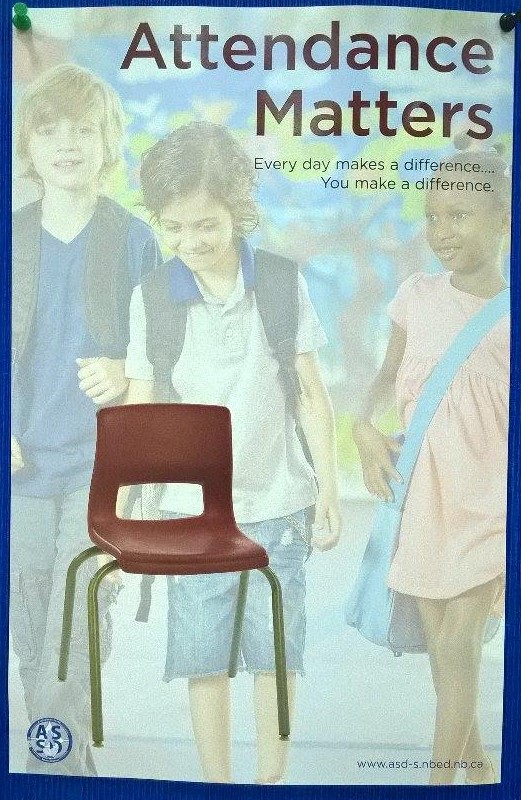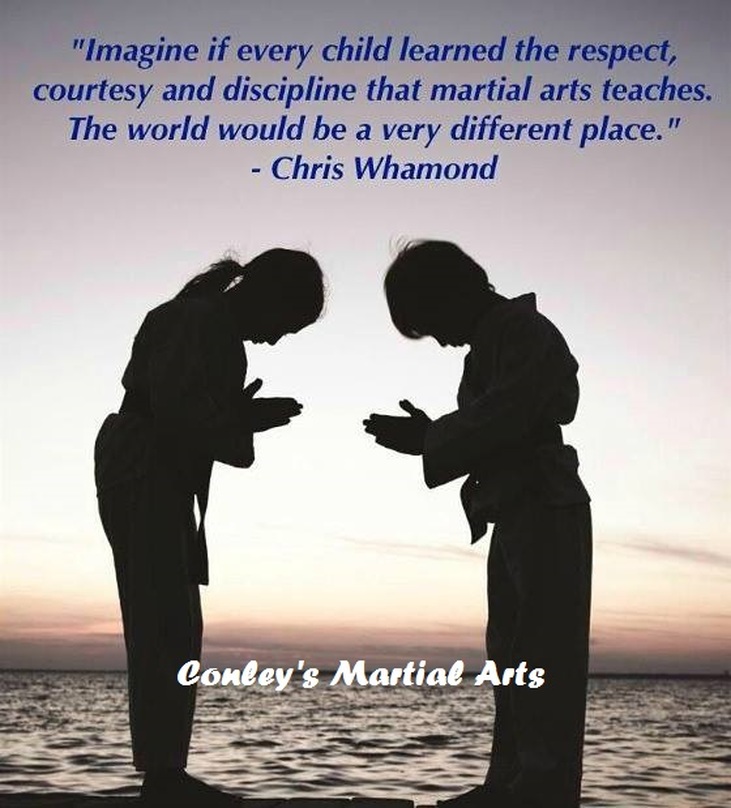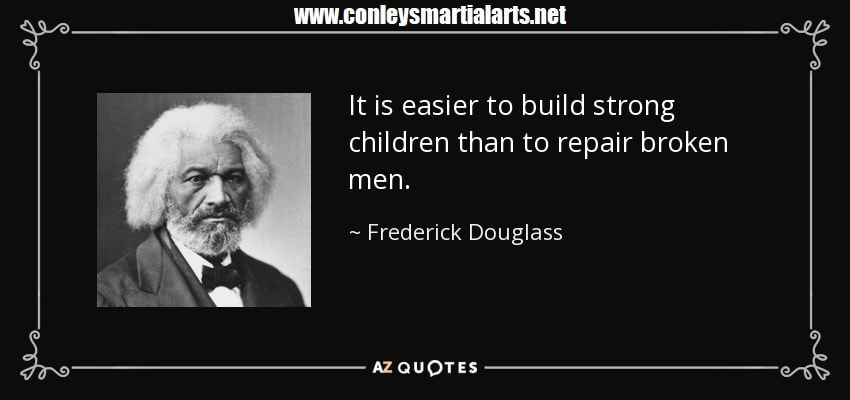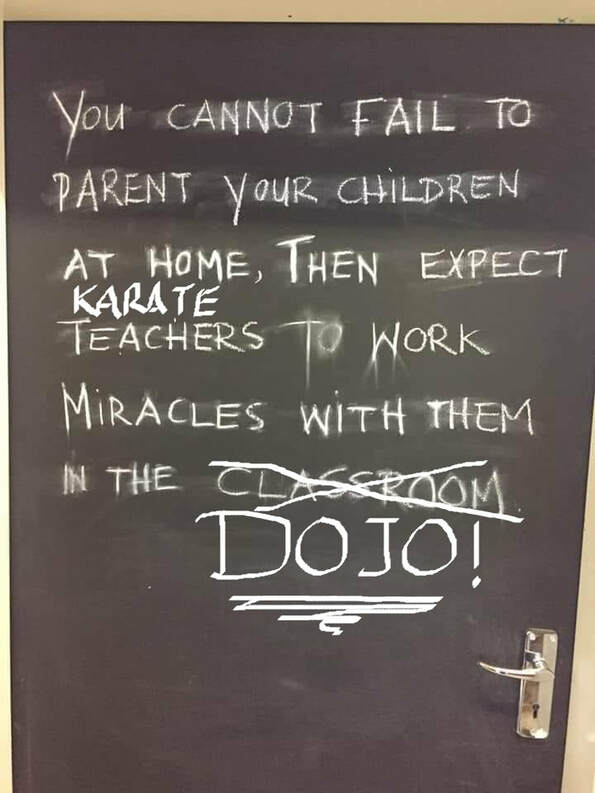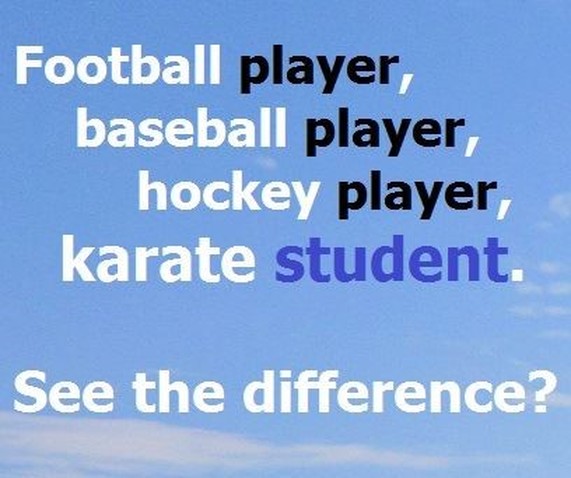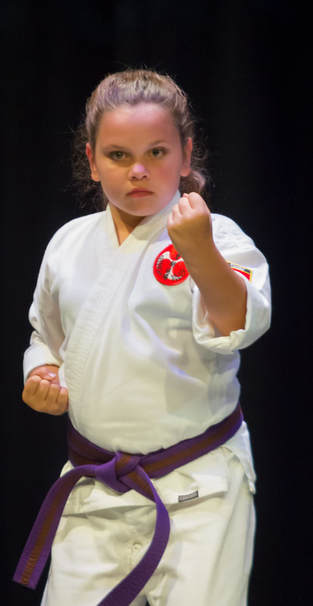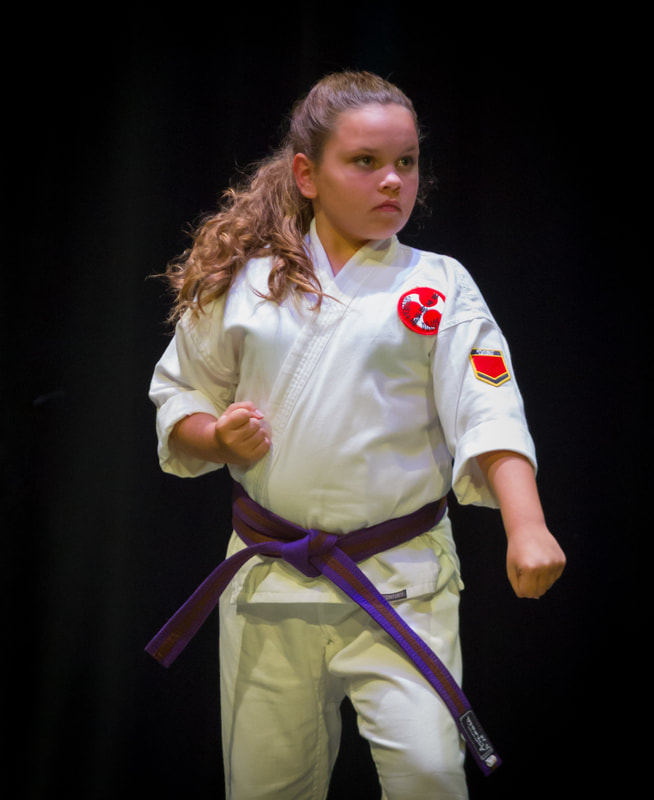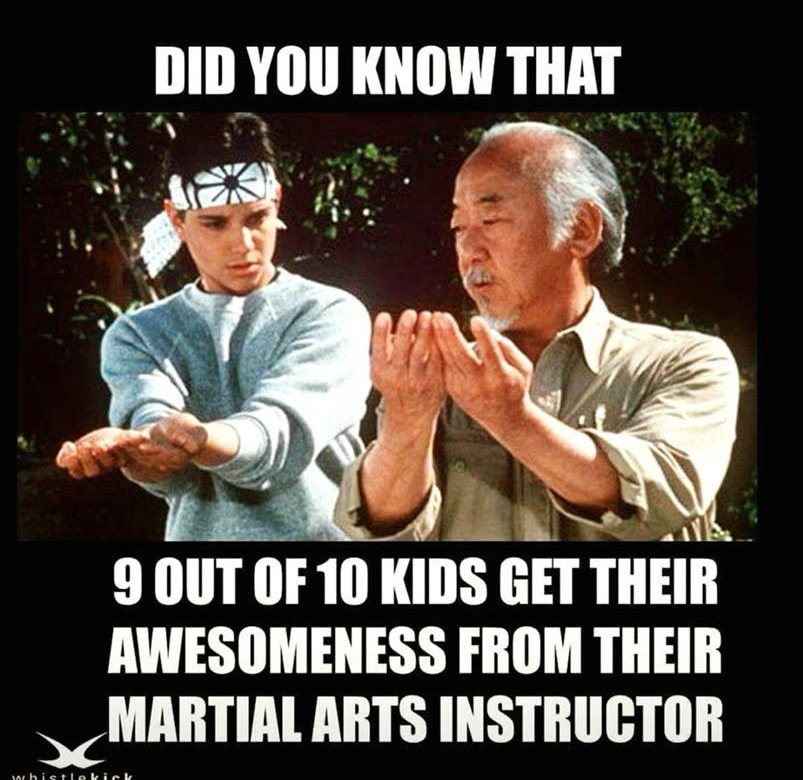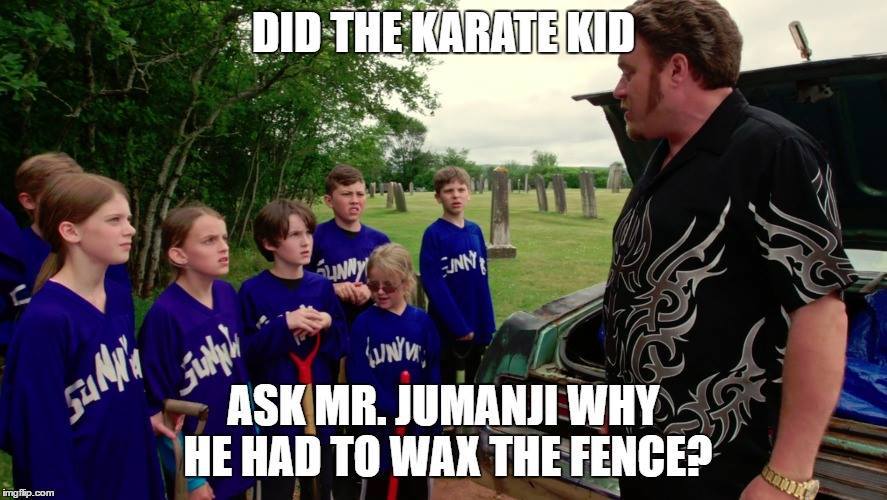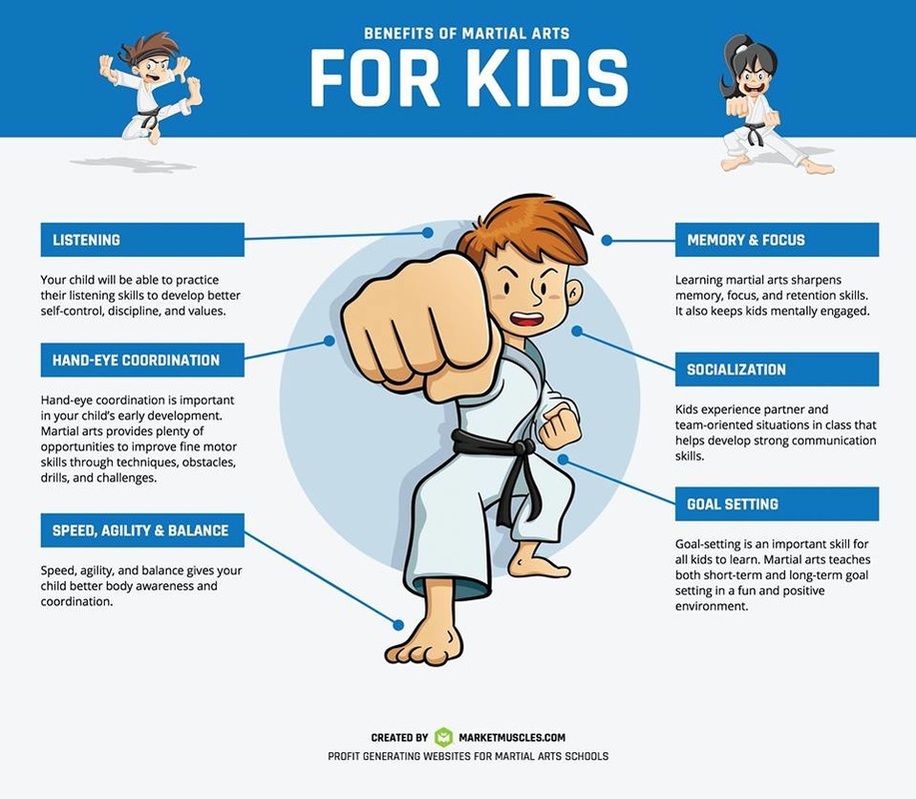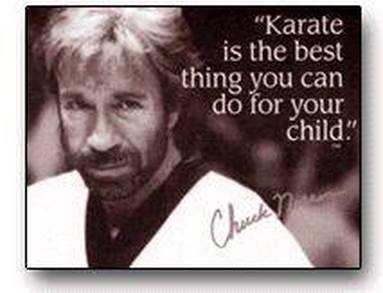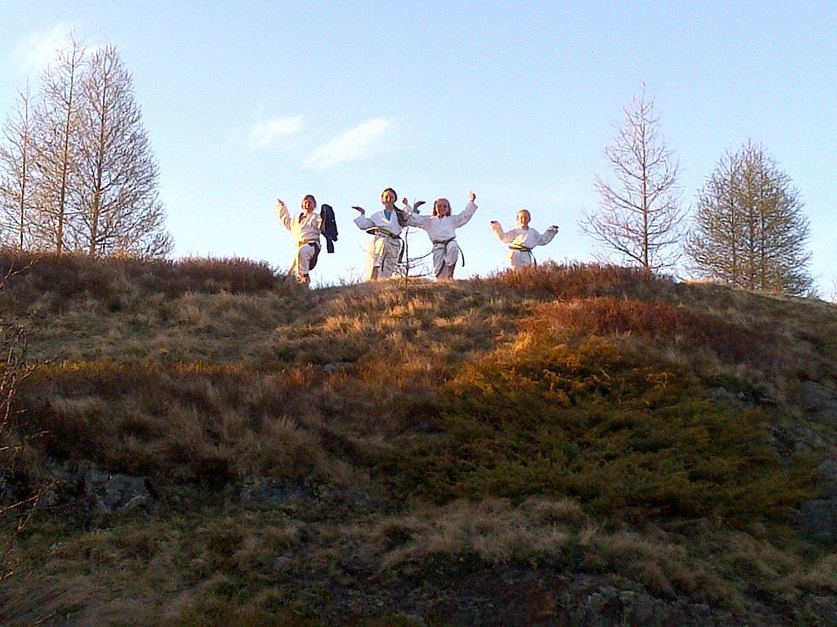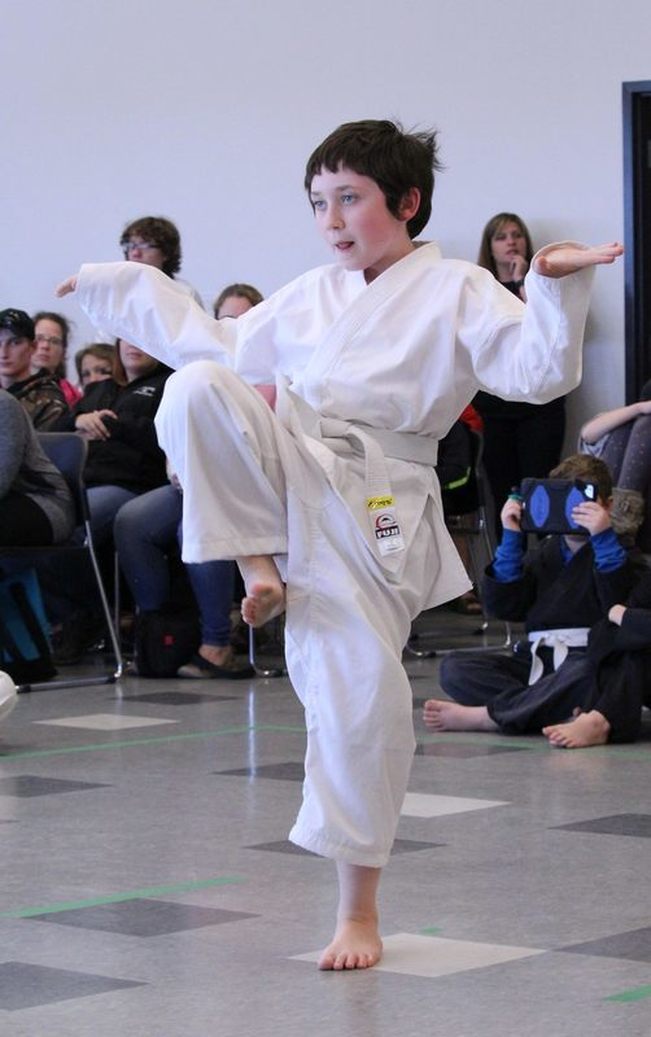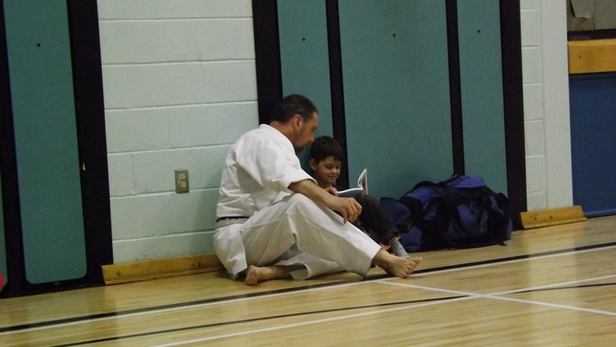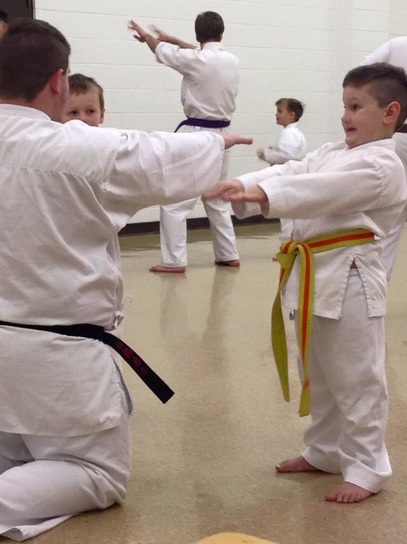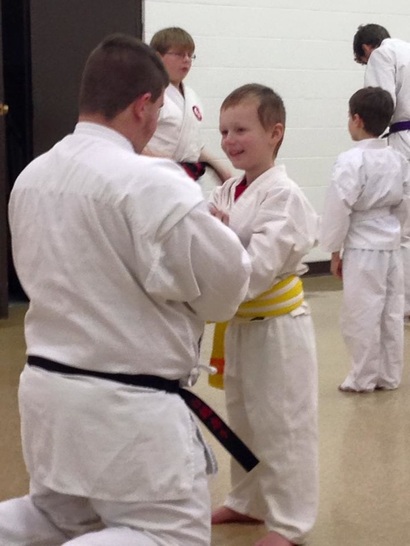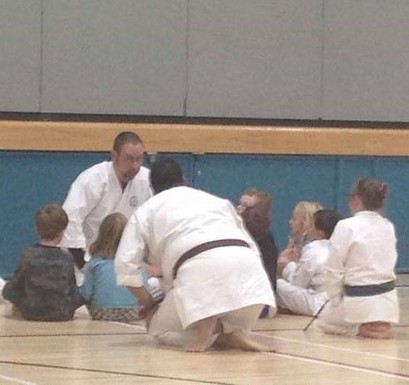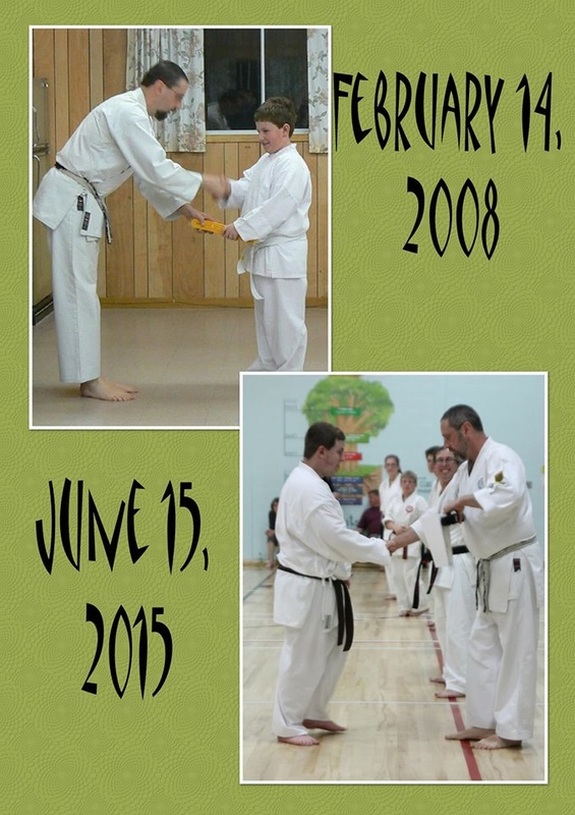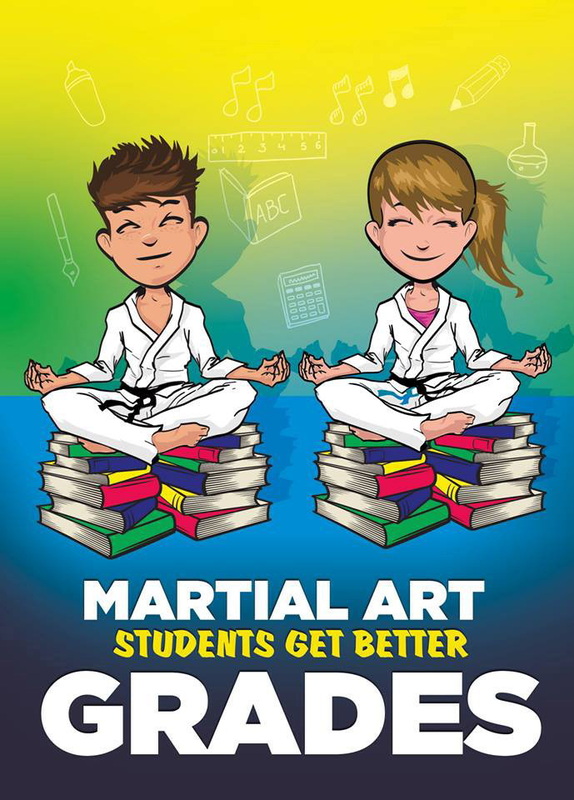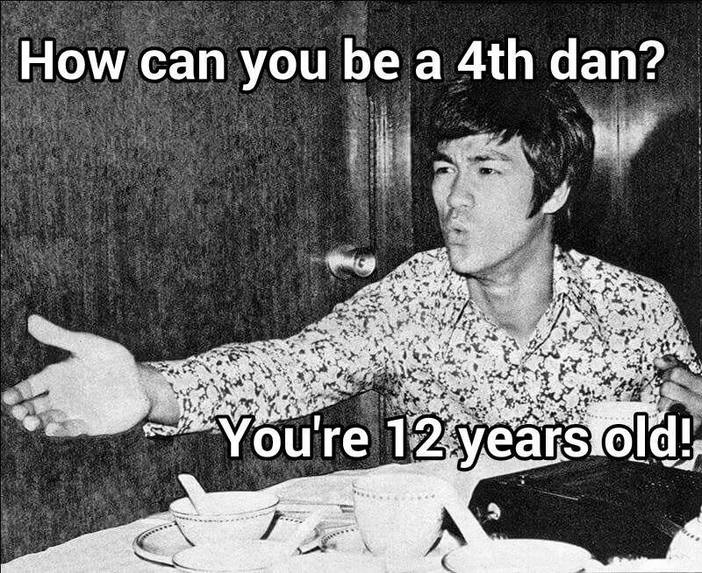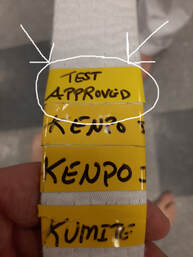Excerpt from near the top of the Kenpo Karate Page regarding Karate as a discipline:
Karate, you will hear frequently called a, "discipline." When you have discipline, you will also have commitment and soon to follow, dedication. This Karate program offered requires your discipline and commitment> meaning, in part, your appropriate attendance in the Dojo! Regarding Karate Kids students, that same dedication must also come form their parents too! The kids don't have drivers licenses> they need you to get them to class and support their training and progression! Students, or parents of students, frequently come into our Dojo with great expectation of progression and advancement. To those who do, make sure you understand it comes from hard work and participation. All the things already stated above! But remember, this art is NOT about acquiring rank!
Karate, you will hear frequently called a, "discipline." When you have discipline, you will also have commitment and soon to follow, dedication. This Karate program offered requires your discipline and commitment> meaning, in part, your appropriate attendance in the Dojo! Regarding Karate Kids students, that same dedication must also come form their parents too! The kids don't have drivers licenses> they need you to get them to class and support their training and progression! Students, or parents of students, frequently come into our Dojo with great expectation of progression and advancement. To those who do, make sure you understand it comes from hard work and participation. All the things already stated above! But remember, this art is NOT about acquiring rank!
The bond and respect between teacher and student is developed and re-enforced throughout a student’s time in the Dojo. It is this developmental aspect that carries over into the student’s life, at home, in school, and the outside world. Confidence is built up, and the student’s ability to interact appropriately with others is nurtured.
LEADERS AND MENTORS
“We don’t just make great martial artists, we make great leaders!” - Bill Conley, Group Senior Head Instructor
Adults and students alike as they progress through our ranks are encouraged and given responsibilities, at times, of leading a group, or the whole Dojo.
When you learn to be a leader, you learn to properly do so by your own example. This builds character and awareness of your effect on others.
“We don’t just make great martial artists, we make great leaders!” - Bill Conley, Group Senior Head Instructor
Adults and students alike as they progress through our ranks are encouraged and given responsibilities, at times, of leading a group, or the whole Dojo.
When you learn to be a leader, you learn to properly do so by your own example. This builds character and awareness of your effect on others.
Karate doesn't make the list; for sport activities resulting in the most injuries!
- Johns Hopkins research institute.
- Johns Hopkins research institute.
FREQUENTLY ASKED QUESTIONS (And much of below can apply to Adult students too!)
Can I join anytime? Yes!
Do you run classes year round? Yes!
Who can join? Ages five and up. Students from other Shorin Kenpo Karate schools and other martial arts styles are welcome.
Do I need to be in good shape or have an athletic ability? Absolutely not! In fact karate is ideal for those who are not athletically inclined. There are no physical restrictions!
Is everyone required to achieve the same results? No! Karate training takes into consideration the physical make-up of everyone. The method of our training is devised so that each individual can progress and develop within their own abilities.
How will I benefit from taking Shorin Kenpo Karate? You will learn to defend yourself, get in shape, gain self-discipline, and most of all, develop awareness of things around you.
Will I get hurt? No! In fact, our injury rate is lower than an aerobics class, or most sports.
How does traditional karate differ from sports karate? Sports karate, like other sports, is governed by a set of rules with emphasis on winning or defeating the opponent. In traditional karate, the attitude of winning or defeating the opponent is overcome by self-control and perfection of one’s character. Traditional karate is a defensive style not offensive, although in our system we do teach and have students participate in tournament Karate. Some have competed on a National, North American, and World arenas of competition! However, tournament Karate is presented and viewed as just one aspect of Karate training, and can be beneficial so long as it is represented as one part of the whole of Karate training. Tournament participation is not mandatory.
Can Karate benefit a child with behavioural challenges? Absolutely, children with behavioural challenges thrive in the structured setting offered in a Karate class run by a well-trained instructor (Sensei). The class environment will help the student engage in activities that which will:
Promote self discipline
Enhance physical development
Provide opportunities for positive peer interaction
Increase attention span
Promote respect for authority figures
Assist with weight loss
Students consistently show a marked increase in self-esteem, which provides the foundation for future success. HOWEVER, we are not miracle workers. We cannot replace good parenting, nor can we be of benefit to students if they do not come to class on a regular and frequent basis, and that applies to adult students as well! Karate is not a sport! It is as much a lifestyle as it is a martial art. Karate is something you carry inside you day to day. It is with you, in your heart. If it is not in your heart, then it has become something like a hobby or sport. If it has, then you should reflect on why you are even taking Karate, and perhaps replace it with something else more appropriate to your expectations and goals. Further, our Dojo is NOT designed to be: a daycare service, a place just to meet and socialize, or find someone to date. Our Dojo is not for the light devoted…. BUT, if you, or your child, are looking for something that will instil discipline, good workouts, self confidence, motivation to succeed, positive mentorship, all in a non-threatening environment, then Shorin Kenpo Karate and New Brunswick KO maybe one of your best decisions you make as a positive step in your life or your child’s! Our Dojo is open year around, and our doors are always open to potential new students!
RANKING SYSTEM (Junior) Karate Kids 4 - 12 Years Old
*The black middle stripe in the belt represents the goal of reaching Black Belt, but Black Belt is only the beginning to the next levels of learning. Just as at Black Belt (All: Jr, Adult, and all Shihan Dai levels), red is prevalent. Representing the goal of the Red/Hanshi Belt. The red also represents the Blood. Okinawans believe that when you become an expert/master, it's in the Blood.
Seventh Kyu (Hichi Kyu) White belt is worn.
Can I join anytime? Yes!
Do you run classes year round? Yes!
Who can join? Ages five and up. Students from other Shorin Kenpo Karate schools and other martial arts styles are welcome.
Do I need to be in good shape or have an athletic ability? Absolutely not! In fact karate is ideal for those who are not athletically inclined. There are no physical restrictions!
Is everyone required to achieve the same results? No! Karate training takes into consideration the physical make-up of everyone. The method of our training is devised so that each individual can progress and develop within their own abilities.
How will I benefit from taking Shorin Kenpo Karate? You will learn to defend yourself, get in shape, gain self-discipline, and most of all, develop awareness of things around you.
Will I get hurt? No! In fact, our injury rate is lower than an aerobics class, or most sports.
How does traditional karate differ from sports karate? Sports karate, like other sports, is governed by a set of rules with emphasis on winning or defeating the opponent. In traditional karate, the attitude of winning or defeating the opponent is overcome by self-control and perfection of one’s character. Traditional karate is a defensive style not offensive, although in our system we do teach and have students participate in tournament Karate. Some have competed on a National, North American, and World arenas of competition! However, tournament Karate is presented and viewed as just one aspect of Karate training, and can be beneficial so long as it is represented as one part of the whole of Karate training. Tournament participation is not mandatory.
Can Karate benefit a child with behavioural challenges? Absolutely, children with behavioural challenges thrive in the structured setting offered in a Karate class run by a well-trained instructor (Sensei). The class environment will help the student engage in activities that which will:
Promote self discipline
Enhance physical development
Provide opportunities for positive peer interaction
Increase attention span
Promote respect for authority figures
Assist with weight loss
Students consistently show a marked increase in self-esteem, which provides the foundation for future success. HOWEVER, we are not miracle workers. We cannot replace good parenting, nor can we be of benefit to students if they do not come to class on a regular and frequent basis, and that applies to adult students as well! Karate is not a sport! It is as much a lifestyle as it is a martial art. Karate is something you carry inside you day to day. It is with you, in your heart. If it is not in your heart, then it has become something like a hobby or sport. If it has, then you should reflect on why you are even taking Karate, and perhaps replace it with something else more appropriate to your expectations and goals. Further, our Dojo is NOT designed to be: a daycare service, a place just to meet and socialize, or find someone to date. Our Dojo is not for the light devoted…. BUT, if you, or your child, are looking for something that will instil discipline, good workouts, self confidence, motivation to succeed, positive mentorship, all in a non-threatening environment, then Shorin Kenpo Karate and New Brunswick KO maybe one of your best decisions you make as a positive step in your life or your child’s! Our Dojo is open year around, and our doors are always open to potential new students!
RANKING SYSTEM (Junior) Karate Kids 4 - 12 Years Old
*The black middle stripe in the belt represents the goal of reaching Black Belt, but Black Belt is only the beginning to the next levels of learning. Just as at Black Belt (All: Jr, Adult, and all Shihan Dai levels), red is prevalent. Representing the goal of the Red/Hanshi Belt. The red also represents the Blood. Okinawans believe that when you become an expert/master, it's in the Blood.
Seventh Kyu (Hichi Kyu) White belt is worn.
Sixth Kyu (Roku Kyu) Yellow belt with a Black centre stripe is worn.
Fifth Kyu (Go Kyu) Orange belt with a Black centre stripe is worn.
Fourth Kyu (Yon Kyu) Green belt with a Black centre stripe is worn.
Third Kyu (San Kyu) Blue belt with a Black centre stripe is worn.
Second Kyu (Ni Kyu) Purple belt with a Black centre stripe is worn.
First Kyu (Ikkyu) Brown belt with a Black centre stripe is worn.
1st Dan Junior Grade/JG (Shodan)
2nd Dan/JG (Nidan)
Also, between each colour belt, stripes are earned in the Junior Karate programs. The stripes signify required techniques and/or Kata at each belt level. A stripe can be also awarded to a student in recognition of outstanding performance, or overcoming great adversity in their training. A maximum of three(3) stripes per belt level is structured in the rank system. One stripe represents the required Kumite, the second represents the Kenpo/White Crane Techniques/Exercises, and the third represents the required Kata(s) at that belt level,. The colour of the stripe(s) corresponds with the next belt colour. There is no cost or test fee for the striping.
Students, in the juniors classes, that have achieved their three (3) necessary rank stripes, will on the next next test night, or sometimes before, will go through an evaluation. Upon passing that eval, they will received a fourth, Test Approved, stripe. This will qualify them for their net Belt Rank Test the very next test night conducted.
CMA
In the CMA system of ranking, the minimum age for someone to be promoted to certified first degree black belt (Shodan) is 15/16 years old. In the event the student is under the age of 16 years, that student would be promoted to 1st Dan Junior Grade (J.G.), a black belt with a red centre stripe, after passing a appropriate test. It should be noted, that the test for 1st Dan J.G. does not include the two essays, conducting a Dojo class(s), and the physical test is of a lesser level and requirement. Upon reaching the age of 16 years (special dispensation can be to the age of 15), student at the discretion of the Chief Instructor would be tested for full (Adult) black belt, first degree/Shodan, CMA certified, by completing the full process of two essays, conducting a Dojo class(es), and the physical test. Further,it is quite possible for a young student to reach 2nd Degree Junior Black Belt. In that case upon reaching 16yrs, they would as in previous example, test for full (Adult) black belt, first degree/Shodan, CMA certified. It is very unlikely that there would ever be a 3rd Dan JG Black Belt. Further, a student at the of 16 or higher, that is a junior level Black Belt and not scheduled (for whatever reason) for the next calendared Major Test night for Adult Black Belt, would be moved to an Adult rank of Brown (solid). In this case the student would be then referred to as, "Sempai."
CMA
In the CMA system of ranking, the minimum age for someone to be promoted to certified first degree black belt (Shodan) is 15/16 years old. In the event the student is under the age of 16 years, that student would be promoted to 1st Dan Junior Grade (J.G.), a black belt with a red centre stripe, after passing a appropriate test. It should be noted, that the test for 1st Dan J.G. does not include the two essays, conducting a Dojo class(s), and the physical test is of a lesser level and requirement. Upon reaching the age of 16 years (special dispensation can be to the age of 15), student at the discretion of the Chief Instructor would be tested for full (Adult) black belt, first degree/Shodan, CMA certified, by completing the full process of two essays, conducting a Dojo class(es), and the physical test. Further,it is quite possible for a young student to reach 2nd Degree Junior Black Belt. In that case upon reaching 16yrs, they would as in previous example, test for full (Adult) black belt, first degree/Shodan, CMA certified. It is very unlikely that there would ever be a 3rd Dan JG Black Belt. Further, a student at the of 16 or higher, that is a junior level Black Belt and not scheduled (for whatever reason) for the next calendared Major Test night for Adult Black Belt, would be moved to an Adult rank of Brown (solid). In this case the student would be then referred to as, "Sempai."
